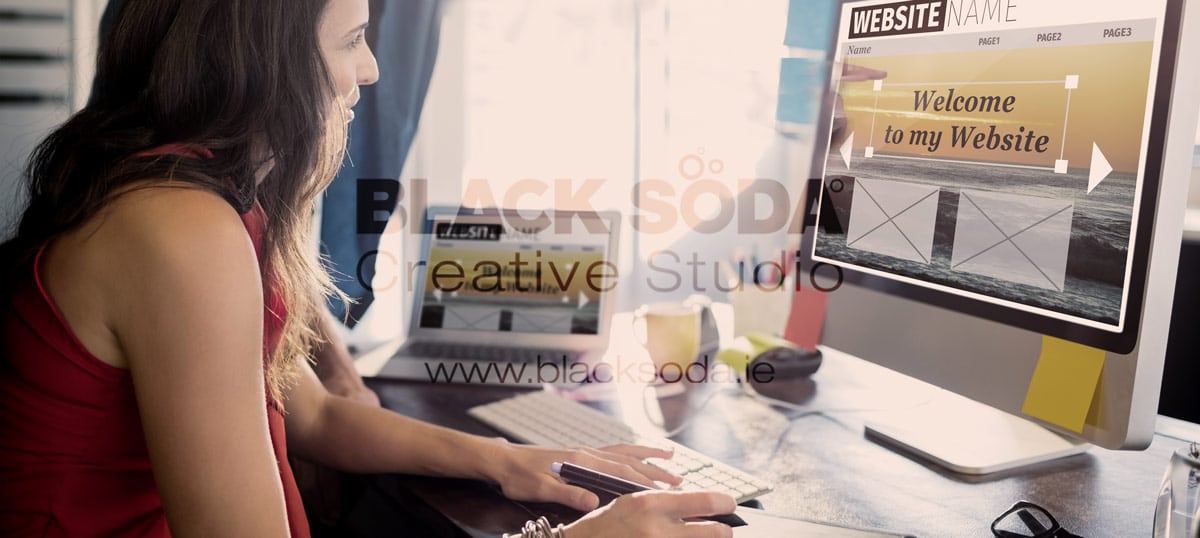In the rapidly evolving landscape of web design, staying ahead of the curve is not just a luxury but a necessity. As we step into 2023, the digital realm continues to present new challenges and opportunities, urging designers and businesses alike to embrace innovative design trends that captivate audiences and enhance user experiences. Here, we delve into the 10 essential website design trends for 2023 that are poised to reshape the online landscape.
-
Immersive 3D Visuals: Elevating Realism and Engagement
In 2023, websites are transcending the boundaries of 2D design and embracing immersive 3D visuals. From interactive product displays to captivating animations, these visuals provide users with a sense of realism that keeps them engaged. Incorporating 3D elements can transform a mundane browsing experience into an exciting journey, enhancing brand perception and user satisfaction.
-
Dark Mode Sophistication: Enhancing Visual Comfort
Dark mode isn’t just a trend; it’s become a user preference. More websites are offering this feature to enhance visual comfort, conserve device battery life, and provide a touch of elegance. With OLED displays becoming more prevalent, dark mode reduces eye strain and creates a sleek aesthetic that users love.
-
Artificial Intelligence Integration: Tailoring Experiences
Artificial Intelligence (AI) is infiltrating every aspect of our digital lives, and web design is no exception. In 2023, AI integration is a key trend, offering personalized user experiences through data analysis and predictive algorithms. From chatbots providing instant support to tailored content recommendations, AI enhances engagement and user satisfaction.
-
Micro-Interactions for Delightful UX
Micro-interactions are the subtle animations and responses to user actions that breathe life into a website. They might be as simple as a button changing color on hover or a loading animation. These small yet impactful interactions create a sense of fluidity and responsiveness, leading to a more delightful user experience.
-
Minimalist Navigation: Simplicity in Motion
With attention spans dwindling, a minimalist navigation approach is gaining prominence. Designers are focusing on clean, intuitive navigation menus that guide users seamlessly through the website. By removing clutter and unnecessary elements, websites can prioritize content and guide users toward conversion points more effectively.
"Artificial intelligence is not a substitute for human intelligence; it is a tool to amplify human creativity and ingenuity."
-
Voice Search Optimization: A New Era of SEO
The rise of voice-activated devices has spurred a new era of SEO—voice search optimization. Websites are now incorporating natural language in their content to align with voice search queries. This trend emphasizes concise, conversational content that answers users’ questions directly, making websites more discoverable through voice searches.
-
Neumorphism: A Digital Tactile Experience
Neumorphism, a design technique that combines skeuomorphism and flat design, is gaining traction in 2023. This approach creates a digital tactile experience by using subtle shadows and highlights to mimic physical objects. Neumorphic elements stand out, adding depth and visual appeal to user interfaces.
-
Abstract Art Compositions: Embracing Creativity
Web designers are breaking free from conventions by incorporating abstract art compositions. This trend brings a burst of creativity to websites, making them stand out in a sea of uniform designs. Bold colors, asymmetrical layouts, and unexpected shapes captivate visitors’ attention and create memorable browsing experiences.
-
Video Headers: Engaging Storytelling
Video headers are transforming how websites engage users from the moment they land on the page. A captivating video can convey a brand’s story, evoke emotions, and showcase products or services effectively. Video headers not only grab attention but also encourage visitors to explore further.
-
Accessibility-First Design: Inclusive User Experiences
Inclusivity is no longer an afterthought—it’s a fundamental aspect of web design. Accessibility-first design ensures that websites cater to users with disabilities, providing equal access to information and services. Designers are adopting practices such as proper color contrast, screen reader compatibility, and keyboard navigation to create truly inclusive user experiences.
In conclusion, the dynamic realm of web design is undergoing remarkable transformations in 2023. These 10 essential trends redefine how websites engage users, convey brand messages, and drive conversions. Incorporating these trends not only keeps your website visually appealing but also aligns it with the expectations of modern digital audiences.
